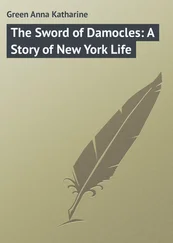Ann Beattie - The New Yorker Stories
Здесь есть возможность читать онлайн «Ann Beattie - The New Yorker Stories» весь текст электронной книги совершенно бесплатно (целиком полную версию без сокращений). В некоторых случаях можно слушать аудио, скачать через торрент в формате fb2 и присутствует краткое содержание. Жанр: Старинная литература, на английском языке. Описание произведения, (предисловие) а так же отзывы посетителей доступны на портале библиотеки ЛибКат.
- Название:The New Yorker Stories
- Автор:
- Жанр:
- Год:неизвестен
- ISBN:нет данных
- Рейтинг книги:5 / 5. Голосов: 1
-
Избранное:Добавить в избранное
- Отзывы:
-
Ваша оценка:
- 100
- 1
- 2
- 3
- 4
- 5
The New Yorker Stories: краткое содержание, описание и аннотация
Предлагаем к чтению аннотацию, описание, краткое содержание или предисловие (зависит от того, что написал сам автор книги «The New Yorker Stories»). Если вы не нашли необходимую информацию о книге — напишите в комментариях, мы постараемся отыскать её.
The New Yorker Stories — читать онлайн бесплатно полную книгу (весь текст) целиком
Ниже представлен текст книги, разбитый по страницам. Система сохранения места последней прочитанной страницы, позволяет с удобством читать онлайн бесплатно книгу «The New Yorker Stories», без необходимости каждый раз заново искать на чём Вы остановились. Поставьте закладку, и сможете в любой момент перейти на страницу, на которой закончили чтение.
Интервал:
Закладка:
Two men wearing chinos and dark-brown T-shirts hopped out. “Mr. Field? How do you do, Mr. Field?” the burlier of the two said. “Moving day, Mr. Field,” the other man said, retrieving a clipboard from the passenger seat. He had a couple of feathers in his shirt pocket. “I’m Jim Montgomery. My partner here is Don O’Rourke.”
“Don,” the partner echoed. “We want to do a good job here, make sure you got no reason to remember us.”
Both men came forward to shake Francis’s hand. Jim plucked a pen from between the feathers in his pocket. “Just need your John Hancock on the line, then we can get started.”
Francis signed their forms, then led the movers inside. “My aunt’s summer house,” he explained, giving them a quick tour. He’d supposed that everyone in the area knew that his aunt was dead, though, of course, he had no reason to suspect that she would have met these particular men.
“Aunt didn’t have tons of furniture,” Jim said. “She an older lady?”
“Ninety,” Francis said.
Don let out a low whistle. “Make it to ninety, then a couple of crooks come in and load everything out.”
Jim crouched to examine a side table, then looked at Francis. “You tagged the pieces we load last?”
“They’re both in the hallway. The pie safe and the hall seat.” The movers had told Bern that they would be unloading these pieces to another moving company, which would transport them to California.
“We’ll get started, then,” Jim said. He turned to Don. “What that remark was about us being crooks, I won’t ask.”
“We took those six-packs of water from behind the 7-Eleven,” Don said. He grinned at Francis. “Go to auctions, get things and distress ’em, bang ’em up and make ’em old.”
Francis nodded, trying to indicate that, whatever they’d done, he did not intend to pass judgment. (It didn’t much matter to him.) His wife had arranged for the moving men, who had been recommended—wasn’t that what she’d said?—by the real-estate agent.
Jim and Don began issuing orders to each other, pulling furniture into the center of the room, moving quickly. Francis turned, pretending to have something to do upstairs. Over his shoulder he noticed something small on the floor and went back to see what it was, as the two men carried the Sheridan sofa out the door. It was Jim’s feather. He put it on the chair cushion, where Jim would be sure to notice it, and returned to the stairs. He went up three steps, four . . . then stopped. Through the window, he saw the broken limb of a tree dangling over the front windshield of the moving truck. On the stairs, a dust ball grazed his foot, stirred up by the small breeze coming through the door. His aunt had lived to be ninety, and he was sixty-six. His son was twenty-four, which, he quickly computed, was the difference in age between his aunt and him. The computation meant nothing.
Francis had practiced law for years, and he did not think his son was at all suited to the vocation. But what was he suited to? He’d been a solid B-plus student, but he’d done very well on his law boards, and he had two very good letters of recommendation, plus one that Bern had helped him get from their congressman. Sheldon played tennis and golf, if that mattered. Lawyers were always disparaged and joked about; probably passion was not a prerequisite quality. Still, he imagined the worst: that Sheldon might get engaged to Lucy just to keep her from other men; that, yes, Lucy did have an eating disorder, and, even if she didn’t, being sneaky was a problem; Sheldon would begin law school then quit—Francis was entirely sure that that was the way things would go—and then he and Lucy would rethink things, though it would be too late if they were already married, or if she was pregnant. She was pregnant. That was why she was eating the bananas, he realized, standing on his aunt’s stairs, the moving men coming and going, oblivious to him. She was coming back—Lucy was coming back from Tokyo early, because she was pregnant. He and Bern would be grandparents. Sheldon would be overwhelmed with responsibility. His life would be nothing but takeout coffee. He wouldn’t have time to study if he wanted to. He would be in a relationship with a woman who did not love him, and whom he did not love.
“That feather,” Francis said, standing (how had he got there?) in the living room. Jim and Don were sweating. The clipboard was on a table. Both feathers were in Jim’s pocket. The pen lay on the clipboard.
“Yeah?” Jim said, patting his pocket.
“What is it from?”
“From? From a bird. I picked it up because I didn’t recognize it, and around here I know the birds. After the hurricane, we lost a lot, then this spring we got some others that hadn’t come around before. Big bird, obviously. I’ve got a book at home. I’m gonna check it.”
“Do you hunt?” Francis asked. He was giving in to his nervousness, making idle conversation.
“Sure,” Jim said slowly. “Hunt, fish. Only go after deer with bow and arrow, though. You wouldn’t be one of those people who get upset because a guy wants to eat, would ya?”
“No, no. I was just curious. Because of your interest in birds. Whether you also hunted, I mean.”
“Know what else he does?” Don interrupted. “Famous for his carving.”
“Oh?” was all Francis could think to say.
“Decoys,” Jim said quietly, almost shyly.
“People collect ’em,” Don said. “Real artistry involved. He apprenticed himself to his grandfather. His grandfather’s things are in that museum in Hartford, Connecticut. You must have been there.”
“The Wadsworth Atheneum,” Francis said. “It’s not that close to where I live.”
“Well, when you go there, you look for Roy Jay Bluefield’s decoys. They’re beautiful things, and my friend here is the bearer of the flame.”
“I’d like to see your work,” Francis said.
“You would?” Jim said. “I live in a workshop that would about fit in the living room of this house. Wife put me out three years ago. You would be interested in seeing decoys?” he said again, as if he didn’t quite believe it.
Francis nodded.
“Tell you what,” Jim said. “You go upstairs, like you were doin’, and in an hour we’ll be outta here. We can swing by my place on our way to Connecticut, if you were serious.”
“Oh, I was very serious. Most serious,” Francis added. That was right: he had been going up the stairs, and suddenly time had gone into a warp, and now it was much later. At this moment, if the plane had landed on time, Lucy might be telling Sheldon the news. That was how your life could change: someone would tell you something.
The moving men resumed giving each other orders, furniture was lifted and shifted into other positions, then something was selected and carried down the steps to the driveway, where the big truck sat. Francis thought again about calling his wife, but realized that she would still be driving home and wouldn’t answer the cell phone. She would probably stop for groceries, which she bought most days, though they both had light appetites. Their son was taller and heavier and ate more than they did, though he was big-boned, rather than heavy. Six feet; a nice-looking boy, with thick wavy hair and those square glasses that all the young people wore unapologetically now. The novel he’d worked on in college had become a novella, then had been abandoned entirely, except for sections he obsessed over and had used to apply to various M.F.A. programs, not one of which admitted him. Good or bad, Francis had no idea; Sheldon would show his writing to no one. An entire year had passed after he finished college, during which he’d lived in their attic and—a bit histrionically, Francis thought—started and abandoned a second novel. Then he had moved out and worked for a year or so with a college friend, doing ordering for the friend’s father’s company, even taking a trip to London. Then—how exactly had it happened?—he had let his lease expire and had moved back into the house, forgoing the attic for his old bedroom, which he repainted charcoal gray. On the weekends Lucy often joined him there.
Читать дальшеИнтервал:
Закладка:
Похожие книги на «The New Yorker Stories»
Представляем Вашему вниманию похожие книги на «The New Yorker Stories» списком для выбора. Мы отобрали схожую по названию и смыслу литературу в надежде предоставить читателям больше вариантов отыскать новые, интересные, ещё непрочитанные произведения.
Обсуждение, отзывы о книге «The New Yorker Stories» и просто собственные мнения читателей. Оставьте ваши комментарии, напишите, что Вы думаете о произведении, его смысле или главных героях. Укажите что конкретно понравилось, а что нет, и почему Вы так считаете.









![О Генри - Рождение ньюйоркца [The Making of a New Yorker]](/books/405345/o-genri-rozhdenie-nyujorkca-the-making-of-a-new-yo-thumb.webp)


